Author: everbella
The Many Benefits of Glutathione – Why You Should Supplement
How much do you know about glutathione?
Whether you don’t know a lot, or you know a little bit and want a refresher, today’s blog is for you!
In my opinion, glutathione is so important because – like collagen – your levels of glutathione can greatly impact how you age. In today’s article, you’ll learn why.
Let’s jump right in…
What is glutathione?
Glutathione is a small molecule that is produced naturally by the body.
It’s involved in many important processes, including detoxification, and plays a vital role in protecting cells from damage.
The body makes glutathione from three amino acids: cysteine, glutamic acid, and glycine.
Like collagen, glutathione levels can become depleted due to age, poor diet, stress, and exposure to toxins.
Since it’s difficult to get glutathione from food sources, supplementing can help to replenish levels and support overall health.
Here are the top reasons to take glutathione:
1. Glutathione is a powerful antioxidant
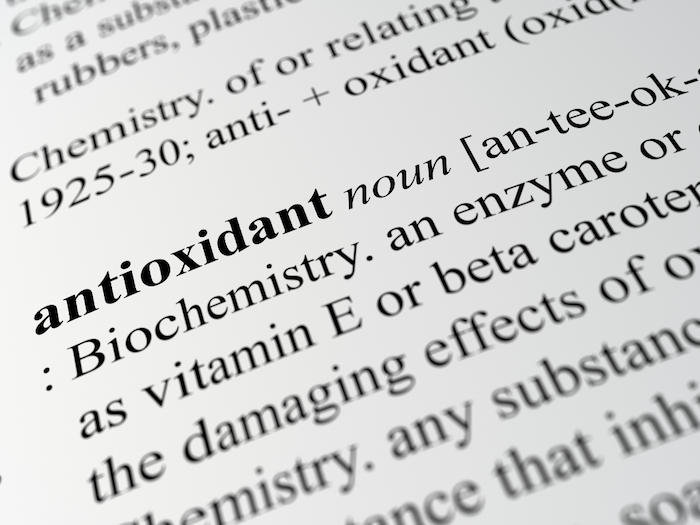
Glutathione is a powerful antioxidant that scavenges free radicals, helping to protect cells from damage.
Free radicals are unstable molecules that can cause oxidative stress, leading to cell damage, and subsequently a range of health issues.
Glutathione is effective at neutralizing free radicals, preventing them from causing oxidative stress, and lowering the risk of illness. This is a large reason why researchers believe low glutathione levels are linked to a greater risk of several fatal diseases. [1]
It’s been dubbed “the master antioxidant” since it can be found in nearly every cell within the body, meaning it can strike anywhere, anytime!
2. Glutathione is essential for detoxification
The liver is responsible for filtering out toxins from the body, and glutathione plays a key role in this process.
Glutathione binds to toxins and helps break them down so that they can be excreted from the body.
Without adequate glutathione, toxins can build up and cause damage to cells and organs.
Additionally, glutathione has been shown to help support the cells within the liver following damage brought on by excessive alcohol or other liver-damaging circumstances. [2]
3. Glutathione supports immune function
Glutathione is involved in many aspects of immune function. It helps to protect cells from damage caused by toxins and infection while playing a role in the production of immune cells.
It also helps regulate the innate immune system, allowing for a more robust, targeted, and accurate response. [3]
4. Glutathione levels decline with age
Like I mentioned above, glutathione is similar to collagen in that levels deplete with age.
That’s because as we get older, our bodies simply produce less and less glutathione. [4]
This can lead to a decline in overall health and an increased risk of disease as free radicals take over and toxins build up.
Supplementing with glutathione can help to replenish levels and support our health as we age.
5. Glutathione may improve exercise performance
Glutathione plays a role in energy production and muscle function. Supplementing with glutathione has been shown to improve exercise performance in some studies.
For example, one study found that those supplementing with glutathione had less muscle fatigue following a workout. [5]
This effect is thought to be due to the ability of glutathione to protect cells from damage caused by oxidative stress.
You can try glutathione risk-free
As you can see, glutathione is important.
That’s why they call it the master antioxidant.
What people may think of as symptoms of “getting old”…
Could just come down to low glutathione levels.
But you can take control of your health…
And how you look and feel as you age.
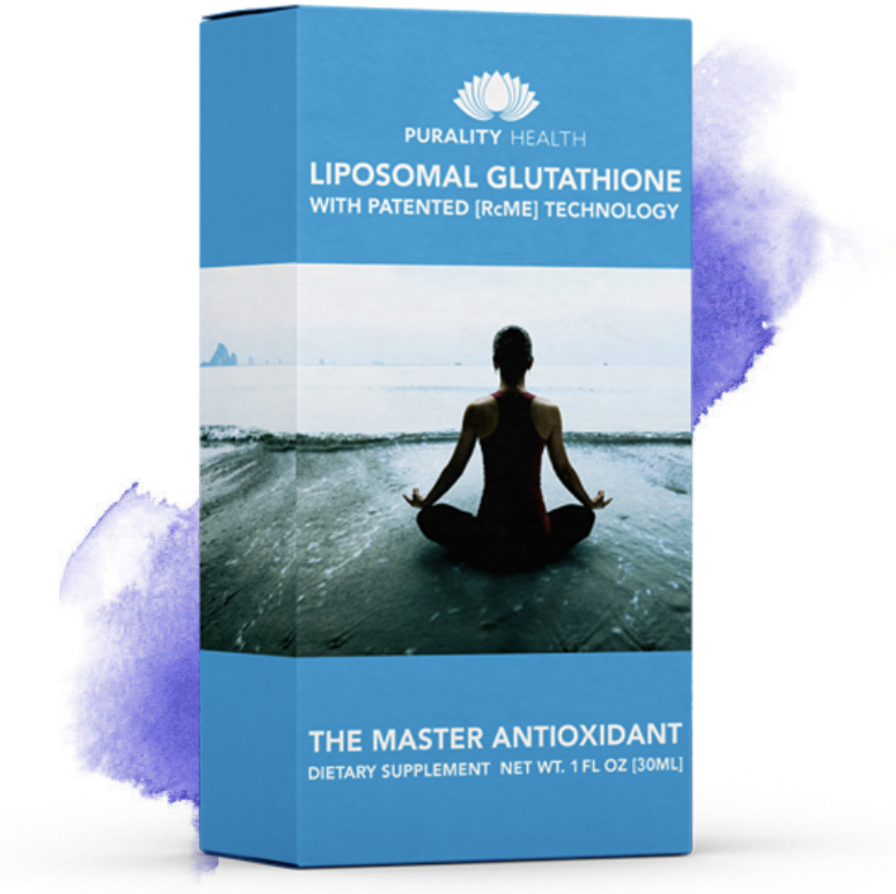
EverBella’s sister company, Purality Health, has a highly absorbable micelle liposomal glutathione.
Like Complete Collagen+, it’s of only the highest quality.
And you can try it for 6-months risk-free!
If you find it’s not for you…
Simply return it for a FULL refund.
To learn more about Purality Health’s highly-absorbable liposomal glutathione…
Including ingredients, reviews, and even more benefits…
The Many Layers Of The Skin
The skin is the body’s largest organ, weighing in at about — on average — six to nine pounds.
It’s made up of several layers, including the epidermis, dermis, and subcutaneous layer. The skin protects the body from injury and infection and regulates body temperature. It also plays a role in immunity and communication. The skin can be affected by a variety of diseases and conditions, including acne, eczema, psoriasis, skin cancer, and others.
In today’s article, I want to break down the layers of the skin, the skin’s function, along with some other interesting details so that you can understand just how much is going on in this outer layer of your body!
Let’s jump right in…
The layers of the skin
The three layers of the skin are the epidermis, dermis, and subcutaneous layer.
The epidermis is the outermost layer and is made up of several layers of cells, including the stratum corneum, stratum basale, and stratum spinosum.
The stratum corneum is the outermost layer of the epidermis and consists of dead skin cells that are held together by a protein called keratin.
The stratum basale is the innermost layer of the epidermis and consists of cells that are constantly dividing and renewing the skin.
The stratum spinosum is the layer of the epidermis that contains the most cells.
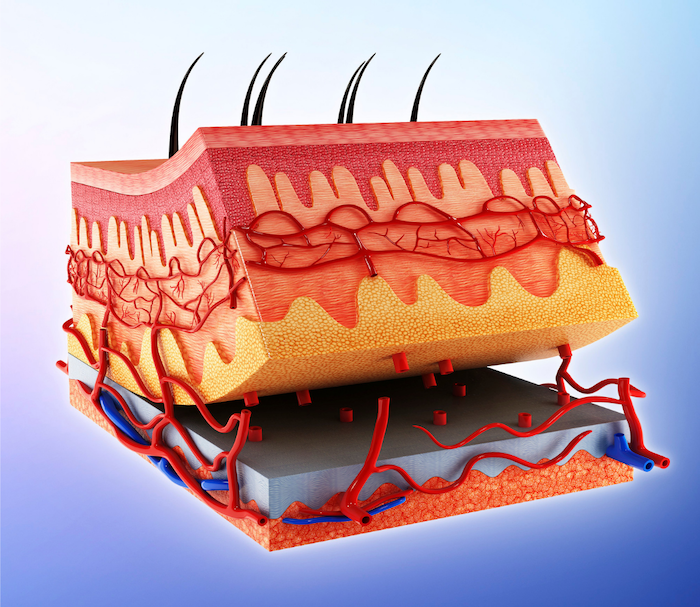
The dermis is the middle layer of the skin and is made up of connective tissue. This is where the majority of the skin’s collagen is found. It contains blood vessels, hair follicles, and sweat glands.
The subcutaneous layer is the deepest layer of the skin. It is made up of fatty tissue and contains nerves, lymph nodes, and blood vessels.
Sweating, immunity, and melanin
The skin regulates body temperature by sweating and by vasodilation and vasoconstriction. Sweating is the process of releasing sweat from the sweat glands. Sweat is mainly water, but it also contains trace amounts of salt, proteins, and carbohydrates. It helps to regulate body temperature by evaporating and cooling the body.
Vasodilation is the widening of blood vessels. It increases blood flow and allows more heat to be released from the body.
On the contrary, vasoconstriction is the narrowing of blood vessels. It decreases blood flow and helps to retain heat in the body.
Being tough, elastic, and able to resist pressure and friction, the skin also protects the body from injury and infection. It contains immunocompetent cells that play a role in immunity. These cells help to protect the body from infection and disease.
The skin also contains melanocytes that produce melanin, which gives the skin its color. Melanin helps to protect the skin from damage by ultraviolet radiation from the sun.
The enemies of skin
The skin can be affected by a variety of diseases and conditions, including acne, eczema, psoriasis, skin cancer, and others.
Acne is a condition that affects the skin, characterized by blackheads, whiteheads, and pimples.
Eczema is a condition that causes the skin to become dry, itchy, and red.
Psoriasis is a condition that causes red, scaly patches on the skin.
Skin cancer is a disease that affects the skin and can be deadly if not treated. There are several types of skin cancer, including melanoma, basal cell carcinoma, and squamous cell carcinoma.
For these reasons, it’s crucial to protect the skin as much as possible, as it’s your first line of defense and is more vulnerable than you may think!
The bottom line
The skin is a vital organ that plays a number of important roles in the body.
It protects the body from injury and infection, regulates body temperature, and communicates with other organs in the body. The skin can be affected by a variety of diseases and conditions, but proper care can help to keep it healthy.
Collagen makes up 70-80% of the dry weight of your skin. [1]
This crucial protein gives your skin its mechanical and structural integrity.
As such, one of the best – and easiest – ways for you to protect your skin is to ensure you maintain healthy collagen levels.
But these levels naturally decrease with age.
A highly-absorbable collagen supplement like Complete Collagen+ can help.
5 Simple Tips For Getting Organized
There’s no doubt about it, life can be hectic and chaotic at times. Between work, family, and social obligations, it can be hard to keep everything straight. But there are some simple things you can do to help stay organized and on top of things.
Sometimes I feel like a complete scatter-brain with everything going on in my life, but the tips outlined below certainly help me stay at my best. When I remember them!
And that’s the biggest thing about staying organized. Obsessing over it may actually stress you out more, so just try and do your best!
Here are 5 simple tips that can help you stay organized:
1. Keep a planner or calendar and update it regularly
The first tip involves organizing your time. Whether on your phone or a physical agenda, get a planner or calendar and update it regularly. This will help you keep track of all your upcoming commitments and make sure you don’t double-book yourself.
It can also make things easier for you mentally. Seeing everything laid out for you can allow you to get a better idea of your schedule so you can not only plan better, but feel less overwhelmed by what’s on the docket.
2. Write lists and check items off as you complete them
Another key way to stay organized is to write lists and check items off as you complete them. This can be anything from a grocery list to a list of tasks you need to complete for work. Checking items off as you go will help keep you on track and ensure that nothing gets forgotten.
Additionally, the more you see checked off of your list, the more motivated you’ll feel to complete the next item!
3. Delegate tasks to others
Whenever possible, delegate tasks to others. This can be anything from asking your spouse to pick up the dry cleaning to delegating a work project to a team member. Sharing responsibilities will help to lighten your workload and make it easier to stay organized.
Don’t bite off more than you can chew. Sometimes, even if you want to do something, you have to say no or ask someone else for help. The reality is, when you say yes to something you can’t devote your energy to, you’re not doing anyone a favor.
4. Put things away in their proper place after using them

One of the most important tips for staying organized is assigning everything a place and then putting them back where they belong after using them. This may seem like a trivial thing, but if everything has a designated spot, it will be much easier to keep your home or office neat and tidy.
Trust me, leaving things out of their spot can quickly snowball, and before you know it, you’ve got a mess on your hands. This not only makes your environment stressful, but gives you an extra job to do.
5. Break down large projects into smaller, manageable steps
Last but not least, breaking large projects down into smaller tasks can help you keep things in check. This will make it easier to stay on track and avoid feeling overwhelmed. Again, seeing everything laid out before you – instead of allowing it to exist as a mess in your mind – can help you rationalize the task before you, break it down, and see what’s necessary to complete it.
Staying organized can be a challenge in today’s busy world, but by following some simple tips, it can be done. In this article, I’ve offered tips for staying organized in a busy world, at home, and in your time. I hope these tips help you keep everything running smoothly!
A bonus of keeping organized…
Being organized means it’s easier to do the things you want to do. Like taking after your health.
If everything has a spot, you’ll know where to find your Complete Collagen+ every morning. And EverBella’s highly-absorbable formula can definitely help you look and feel your best for years to come!
How?
The Difference Between Collagen And Gelatin: What You Need To Know
Collagen and gelatin are both proteins that have a variety of benefits for the human body. Here, I’ll explore the main differences between these two substances.
Important points:
- Collagen is a type of protein found in the body that helps provide strength and elasticity to tissues such as skin, muscle, and bones.
- Gelatin is a form of collagen that has been cooked down into a thick liquid.
- Both collagen and gelatin are derived from animal products, but collagen can also be found in some plant sources.
Collagen is a structural protein while gelatin is a protein that has been broken down into smaller pieces. Collagen is found in the body’s connective tissues, skin, and organ tissue, while gelatin is found in the muscles and bones.
They both have many of the same benefits for the body. They help to improve skin health, joint health, and bone health. They also help to improve digestion and can reduce inflammation. Collagen and gelatin are both excellent sources of protein, and they are both fairly easy to digest.
This is simply because they’re almost the same thing. But not completely…
What is the main difference?
Collagen and gelatin’s main difference comes down to their chemical structures.
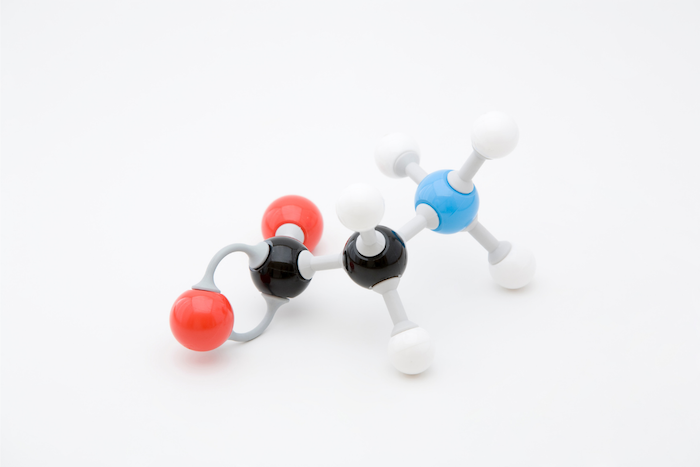
Collagen is formed by a triple helix made up of 3 chains with over 1,000 amino acids each. [1]
In contrast, gelatin is a degraded form of collagen that has been partially broken down. This means that it’s made up of shorter chains of amino acids. [2]
This makes gelatin easier to digest than pure collagen. However, collagen supplements are mostly made of a type of collagen called collagen peptides. This type of collagen is easier to digest than gelatin.
Also, collagen peptides dissolve in both hot and cold water, while most forms of gelatin only dissolve in hot water. When cooled, gelatin can form into a thick gel. This is why it cannot be used interchangeably with collagen peptides. [2]
Is one better than the other?
If you’re trying to decide whether you should take collagen or gelatin, there are a few factors to consider.
While collagen and gelatin both share many of the same benefits, they have different functions.
Collagen is mostly used as an easy-to-digest supplement. You can add it to your coffee, tea, smoothie, and many other recipes without affecting consistency or even taste. Like Complete Collagen+, these come in formulas that are designed to boost collagen levels and support your health.
On the other hand, gelatin is used primarily for its gelling abilities, which have many culinary uses and applications. For instance, you can use it to make homemade candies or to thicken recipes.
That said, you reap the most benefits by sticking to collagen supplements. This is because you know how much you’re taking and you’re giving your body straight collagen as opposed to a broken down form.
If you want not only straight collagen, but straight collagen that can actually be absorbed and used by your body, you want Complete Collagen+.
Here at EverBella, we wrap the collagen peptides in protective layers called micelles and liposomes.
These allow the collagen to make it to your intestine fully intact where it can be readily absorbed into the bloodstream instead of just breaking down and passing through.
Get the most out of every dose.
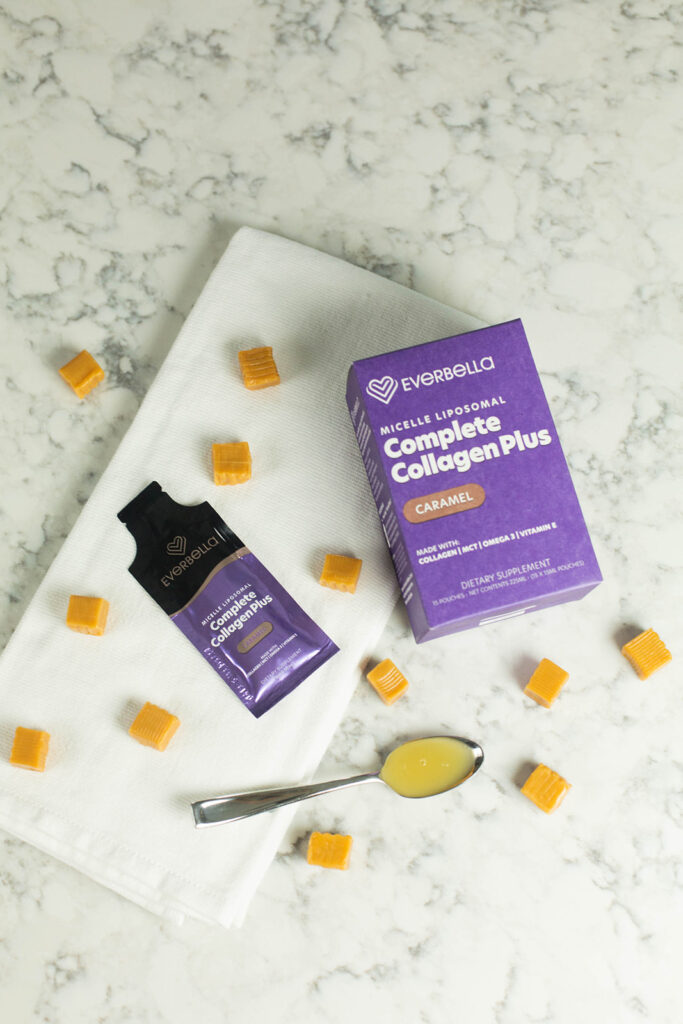
5 Signs Your Hair Needs A Protein Treatment
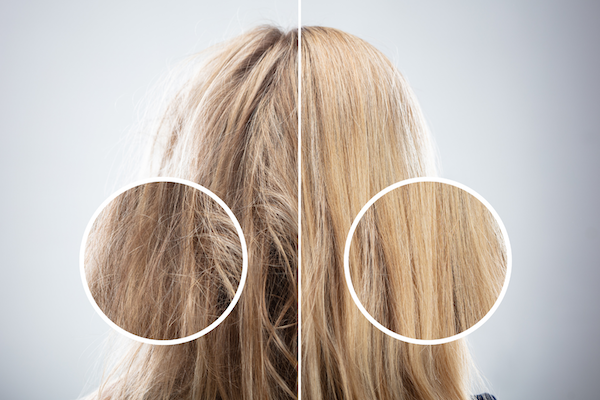
Taking care of your hair requires work from the inside out. If you’ve just started taking collagen, maybe your hair still has some lasting damage that hasn’t been replaced by your new, healthier hair yet.
But don’t worry, there are things you can do on the outside while your body works to strengthen your hair from the inside.
One of these things is a protein treatment. Protein treatments for your hair involve hydrating ingredients, proteins like collagen and keratin, and other nutrients. You can buy formulas made for this at the store to spray or lather into your hair and then rinse out. These hair masks can help your hair absorb much-needed compounds to allow it to be its best!
But how do you know if you need a protein treatment?
In today’s article, let’s look at 5 signs that indicate your hair may be in need of a protein treatment.
1. High porosity
When your hair has high porosity there are often tears and gaps in the strands that can make it more vulnerable to damage.
These gaps allow the hair to absorb too much water, casing frizz, tangles, and even color-loss.
A protein treatment can help fill in the gaps and seal them, strengthening the strands of your hair.
2. Loss of elasticity
If your hair has lost its natural curl, or it just won’t curl as well as you’d like, it could be due to your hair’s elasticity.
To measure your hair’s elasticity, take a strand of your hair (while it’s attached to your head) and wet it. Once wet, stretch the hair. Does it bounce back to its original length? Good! But if it doesn’t bounce back, looks limp, or breaks, it’s definitely in need of a protein boost.
A protein treatment can help hair gain back its elasticity by boosting its protein levels. This will allow your hair to be bouncier and easier to style!
3. Stringy or limp
If your hair is stringy, limp, or flat, it needs a protein boost.
Healthy hair should be durable and full. When it starts to look limp, it’s time for a protein treatment!
4. Gummy or sticky
If your hair just feels… odd. That’s not a good sign. If your hair feels sort of like it’s sticky, this means it has undergone some damage and is having difficulty repairing itself. This can occur from chemical treatments, heat, or some other exposure that stripped it of nutrients.
A protein treatment can help your hair reconstruct and return to those soft strands you want to run your fingers through!
5. Recently colored hair
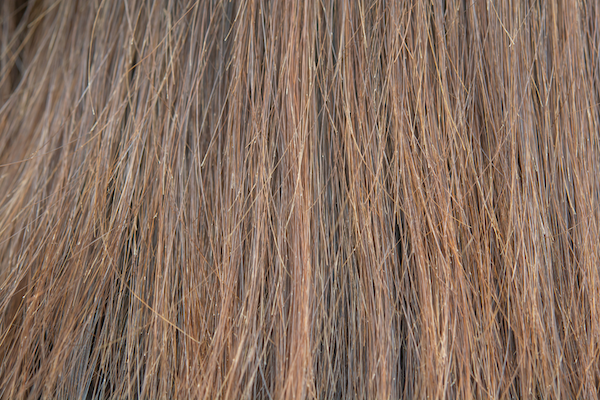
Coloring your hair is fun and exciting! But the sad truth is, it can really put your hair through the ringer.
If you’re routinely coloring your hair, you should be doing a protein treatment just as – if not more – often.
However, even if you get it done once in a blue moon, it’s a good idea to ask your hair stylist to do a protein treatment beforehand. That way, your hair can have a better base of support during and after the color treatment.
Treating your hair
If you decide to go to the store to purchase a protein treatment for your hair, you may see in the directions that it’s advised to not overdo it.
Depending on ingredients, it’s best not to overload your hair with protein treatments, as this may cause a buildup which can damage your hair even more.
If you want to make your own protein treatment at home, all you need to do is mix one egg, two cups of plain Greek yogurt, and a tablespoon of coconut oil. It’s best to blend these ingredients, work them into your hair and allow it to sit for at least 15-20 minutes, then rinse and do a normal shampoo/conditioner wash of your hair.
Additionally, there are a ton of variations online when it comes to these homemade treatments, so feel free to explore and find one which works best for you!
Your hair is unique
With all of these points in mind, remember that your hair is unique to you. A hairstylist will be able to look at your hair and tell you how healthy it is and what it might need – whether that’s a protein treatment or something else.
Talk to your hairstylist about what’s best for the health of your individual hair on the outside.
Meanwhile, on the inside, collagen can help boost the health of your hair so that new hair grows strong and robust!
Butter Coffee — Recipe And Benefits
You may have heard of a trend that involves putting butter into your coffee. You may have then wondered why people are doing this and what the benefits could be.
In today’s article, I’ll go over what butter coffee is, how to make it, potential benefits, and possible risks.
Let’s jump right in!
What is butter coffee?
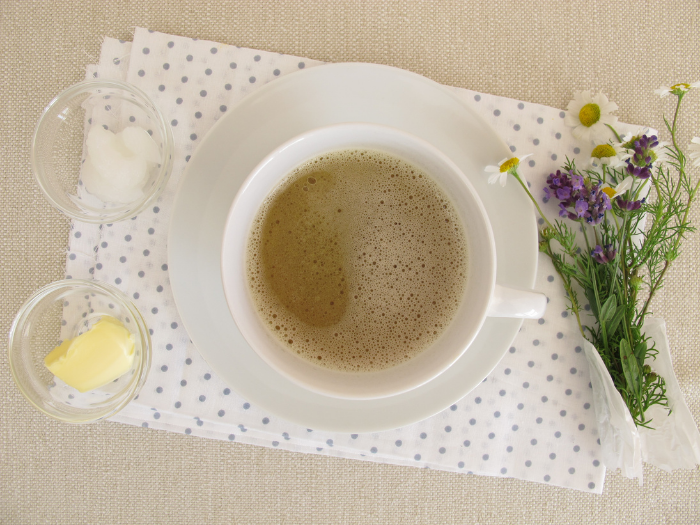
Butter coffee is a drink that consists of brewed coffee, unsalted butter, and medium-chain triglycerides (MCTs).
MCT’s are an easily digestible type of fat. To learn more about MCTs and their benefits, click here.
For this, you can use either coconut oil – which is high in MCTs – an MCT oil supplement, or any other product that contains MCTs.
Butter coffee is popular as a breakfast replacement for those following a keto diet, which is high in fat and low in carbs.
Others consume it for some potential benefits which we will cover in just a moment. Before that, though, let’s take a look at a butter coffee recipe so that you can see just how simple it is!
Butter coffee recipe
If you want to make a butter coffee, you’ll need your regular method of making coffee, a blender, and a few other things.
Here’s what you’ll need:
- About 1 cup of brewed coffee
- 1 tablespoon of unsalted butter
- 1 tablespoon coconut oil or Complete Collagen+
Here’s what you’ll need to do:
- Mix all ingredients in a blender and blend for 20-30 seconds.
Butter coffee nutrition
A typical cup of butter coffee can contain up to 445 calories and 50 grams of fat, without much else in terms of nutrition. And nearly 85% of the fat in butter is saturated fat. Too much saturated fat can raise levels of LDL cholesterol, ie. the bad type of cholesterol. [1]
For this reason, butter coffee isn’t a good replacement for a whole breakfast that can offer you a range of nutrients to keep you energized throughout your day.
So, does butter coffee have any benefits?
Claims around the benefits of butter coffee include that it provides lasting energy, boosts mental clarity, and supports fat loss by suppressing hunger.
Though no high-quality studies have been done on butter coffee itself, conclusions can be made based on some other research. Let’s take a look!
Does butter coffee suppress hunger?
Many believe that butter coffee can help you lose weight because it suppresses hunger, causing you to eat less. There may be some truth to this.
Butter coffee contains a large amount of fat, which slows digestion and can help you feel fuller for longer. [2, 3, 4, 5]
But what probably helps the most are the MCTs. If you’re using coconut oil or a supplement with MCTs, these specifically can help promote feelings of fullness, according to research. [6]
One study found that those who ate a breakfast containing MCT oil for 4 weeks consumed fewer calories throughout the day and lost more body weight than participants who didn’t include the MCT oil with their breakfast. [7]
And this isn’t the only research supporting it. Other studies have also found that the addition of MCTs into a weight loss regimen reduced hunger and led to greater weight loss. [8, 9, 10]
Can butter coffee boost energy?
Another big claim surrounding butter coffee is that – outside of the caffeine kick – it can provide long-lasting energy throughout the day without a crash.
Because of the fats causing a slower digestion, in theory it makes sense that the caffeine may digest slower and the benefits – such as boosted energy – will be spread throughout the day. However, research suggests that the effect of this is likely so negligible that it’s unnoticeable. [11]
That being said, the MCTs are well known for their ability to provide energy. This is because they’re fats with a shorter chain length and can be quickly broken down by the liver and used for energy. This can boost energy levels, kicking in rapidly and lasting over a long period. [12]
Does butter coffee provide mental clarity?
Some say that drinking a cup of butter coffee can provide you with mental clarity.
If you’re following a ketogenic diet – meaning you take in very low carbs and high fats – your body will take MCTs and convert them to ketones. These can be used as an energy source for your brain. While this process has been shown to reduce the risk of cognitive decline, there isn’t any research showing that it can offer mental clarity. [13, 14, 15]
But that doesn’t mean butter coffee doesn’t provide mental clarity.
It does.
Why? Because it contains good old fashioned coffee. The caffeine within can boost mental focus and alertness. [16, 17, 18, 19]
Downsides to butter coffee
As I mentioned earlier, it’s best to start your day off with a nutritious breakfast. This can provide you with the fuel needed to be your most productive. This doesn’t mean you shouldn’t have butter coffee in the morning. Just make sure you’re eating as well.
But one thing to consider is how your body responds to cholesterol. Butter coffee contains a significant amount of cholesterol. While this doesn’t necessarily mean it will impact your cholesterol levels, approximately 25% of people are considered “cholesterol hyper-responders”. This means that foods high in cholesterol can significantly raise their blood cholesterol levels. [20, 21, 22]
If you’re one of these people, you should consider not adding butter coffee to your routine. But generally speaking, butter coffee is well-tolerated for most people!
If you plan to try butter coffee, just remember to keep a healthy balance in mind. Your body needs a wide range of nutrients to function optimally.
Want to have a butter coffee with a delicious caramel taste?
Or what about a normal coffee with a yummy touch?
Add Complete Collagen+!
References and resources
- https://www.health.harvard.edu/staying-healthy/the-truth-about-fats-bad-and-good
- https://pubmed.ncbi.nlm.nih.gov/19225118/
- https://www.ncbi.nlm.nih.gov/pmc/articles/PMC4960974/
- https://pubmed.ncbi.nlm.nih.gov/25226819/
- https://pubmed.ncbi.nlm.nih.gov/30166637/
- https://pubmed.ncbi.nlm.nih.gov/11880549/
- https://pubmed.ncbi.nlm.nih.gov/12634436/
- https://pubmed.ncbi.nlm.nih.gov/11571605/
- https://pubmed.ncbi.nlm.nih.gov/12532160/
- https://pubmed.ncbi.nlm.nih.gov/18326600/
- https://www.ncbi.nlm.nih.gov/books/NBK223808/
- https://www.ncbi.nlm.nih.gov/pmc/articles/PMC4878196/
- https://pubmed.ncbi.nlm.nih.gov/27080715/
- https://www.ncbi.nlm.nih.gov/pmc/articles/PMC6021549/
- https://www.ncbi.nlm.nih.gov/pmc/articles/PMC6356942/
- https://www.ncbi.nlm.nih.gov/pmc/articles/PMC5608989/
- https://pubmed.ncbi.nlm.nih.gov/20888549/
- https://www.ncbi.nlm.nih.gov/pmc/articles/PMC4595381/
- https://www.ncbi.nlm.nih.gov/books/NBK519490/
- https://www.ncbi.nlm.nih.gov/pmc/articles/PMC5946211/
- https://pubmed.ncbi.nlm.nih.gov/11737237/
- https://pubmed.ncbi.nlm.nih.gov/16596800/
